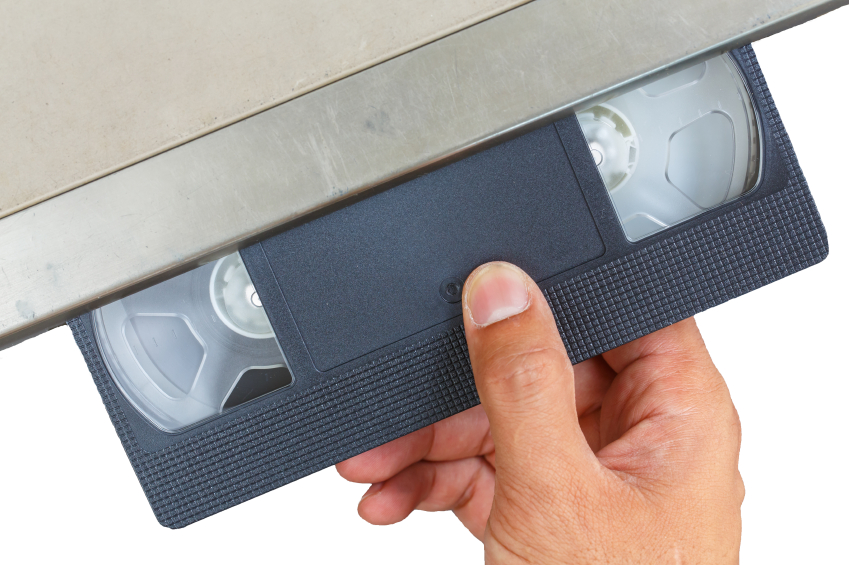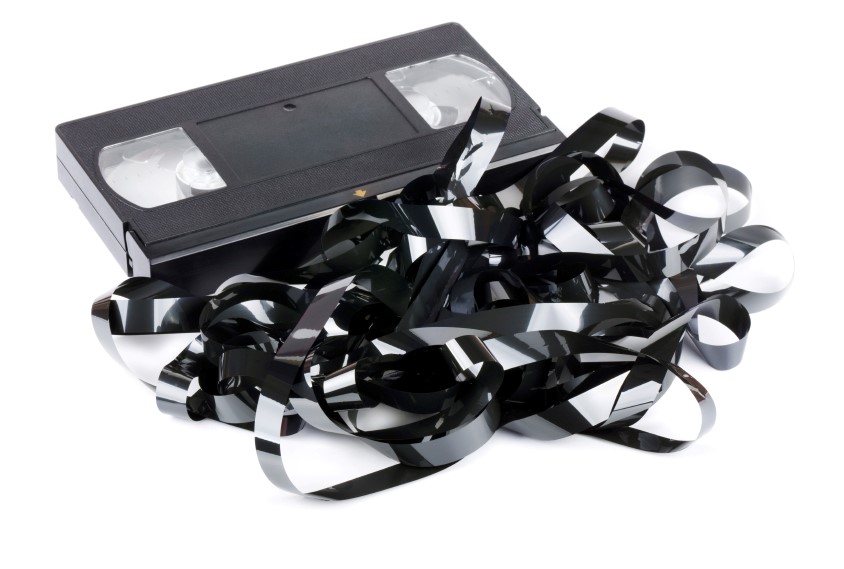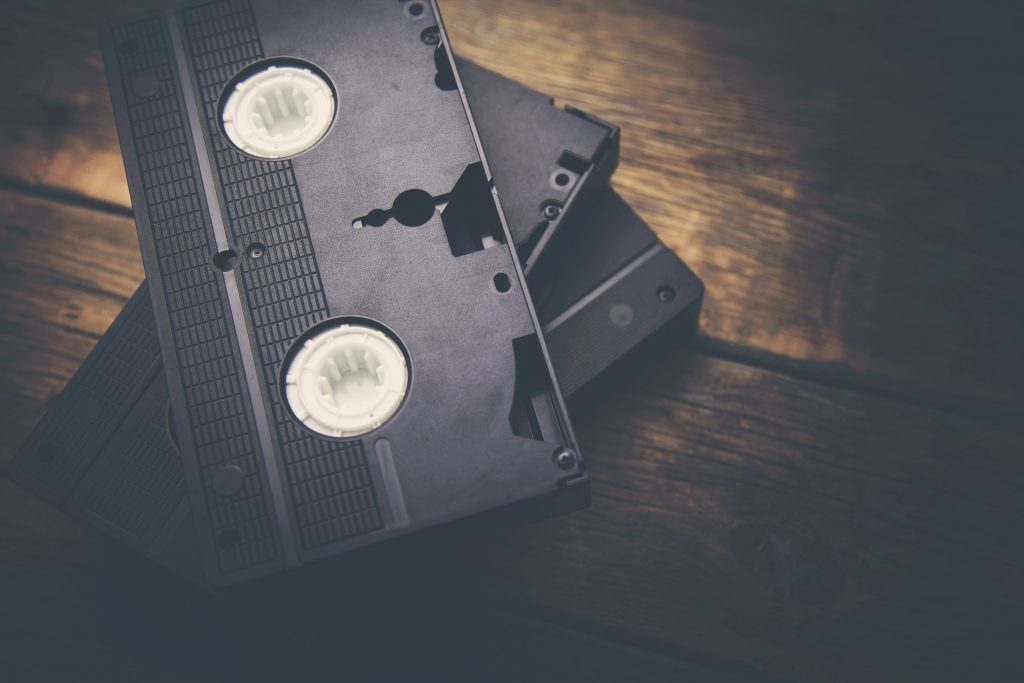VHS tapes were, at one time, a very popular storage medium for recording precious memories and having them to watch for many years to come. The family would gather around the TV set to watch VHS tapes of times gone by and reflect on all those incredible memories like baby’s first steps or Mum and Dad’s wedding.
But the VHS has long fallen out of use, and for good reason. For as revolutionary as this technology was at the time of its inception, it has nothing on today’s recording and playback technology. Today, most people carry around a device in their pockets capable of recording, and there are far more efficient ways to create hard copies of video footage that won’t deteriorate over time.
Let’s take a look at some of the most common issues with VHS tapes and why the likes of DVDs and MP4 recordings do not have these same problems.

Tape Deterioration
The tape inside the VHS cassettes is very delicate and can be easily ruined, making them unplayable and unrepairable. The reason the tape deteriorates is that the magnetic charge needed for them to work is not permanent, and the magnetic particles end up losing their charge in a process known as remanence decay. These particles could also become demagnetised via being stored too close to a magnetic source.
The damage may be severe or just minor, but it will affect the footage, making it shaky and unstable. With further damage, the image may jump around on the screen and present black bars over the footage, incurring colour shifts and a loss of detail. Excessive rewinding and playback of the tape can exacerbate the damage, making your video even more unwatchable every time you watch it.
Deterioration can be slowed with proper storage and care, but it will happen eventually. But unlike VHS tapes, a DVD does not suffer the same fate as the discs do not have parts that can deteriorate gradually over time, and MP4 files do not deteriorate at all.
Digital Corruption
Some VHS tapes like newer mini DVs and Digital 8 tapes can suffer from digital corruption, meaning that the footage becomes lost and cannot be recovered. These tapes were the steppingstone from VHS to the digital age when capturing footage straight to digital became the norm. Unfortunately, they are susceptible to digital corruption, which causes video pixilation and/or loss of audio.

Mould Damage
VHS tapes that have been stored in suboptimal conditions can develop mould damage. Mould grows on the tapes when they are left in warm, damp conditions. These mould spores eat into the oxide coating on the tape which can cause the tape to stick to itself. Some mould can be cleaned and removed from tapes if caught early enough, but this is not always possible. Once the tape sticks together, they become unrepairable. Mould can also degrade the picture quality of your video footage.
Mediums like DVD do not suffer from similar problems and can be stored for many, many years and suffer no degradation at all. You can prevent your VHS tapes from becoming mouldy, but you need to have optimal storage conditions that are not too hot or humid, which can be difficult to achieve.
Tape Slippage
One of the most significant issues with VHS tapes is that they have moving parts, meaning that there are more occasions when something can go wrong, damaging your footage or preventing it from playing back. The tape itself is a prominent cause of this, and tape slippage can occur. Tape slippage can be caused when the tape loses its tension, or it has become warped. These problems can occur in storage due to high temperatures or frequent changes in humidity.
Restoring tape tension can be done, but tape warping is when the tape starts to stretch or bend, which can be very difficult or impossible to repair. These problems can lead to image disruption and noise during playback, which cannot be fixed. Excessive tape damage can also mean that the tape cannot actually be played in the player.
Lack of Players
Speaking of VHS players, these are becoming increasingly scarce. The last VHS player was manufactured in 2016, so it’s impossible to buy a new one now. Old VHS players can still be found online, but they will eventually become so obsolete that it may be virtually impossible to find one, and very difficult to get yours repaired if it breaks.
So, if you’ve got old VHS tapes lying around, you may find that it becomes very difficult to even play the tapes and watch them back. Your children and grandchildren are very unlikely to have a VHS player to watch your videos on at Christmas, which is why you should consider a DVD transfer.

When you transfer video to DVD, you get to keep hold of your precious video footage but on a much more reliable format that will not succumb to any of the issues mentioned. DVDs can be stored away in a case for many years and will still play perfectly in your DVD player, computer or games console. We have many years of experience converting VHS tapes, and we will always treat your video footage like it is our own. If you’d like to learn more about our video to digital services, do not hesitate to contact us today.

